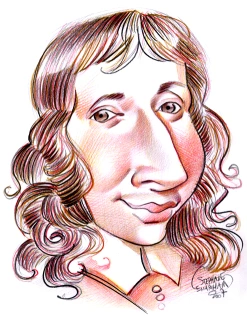Encyclopedia of Philosophy: Blaise Pascal
Publié le 09/01/2010
Extrait du document

Two years after the publication of Descartes' Meditations, King Louis XIV succeeded to the throne of France. For the first eighteen years of his reign he was a minor, and the government was in the hands of his mother, Anne of Austria, and her chief minister Cardinal Mazarin. At the latter's death in 1661 Louis began to rule himself, and became the most absolute of all Europe's absolute monarchs. Within France, all political life was centred within his Court. ‘L'état, c'est moi' he said famously: I am the state. At Versailles he built a magnificent palace to reflect his own splendour as the Sun King. He revoked the Edict of Nantes, and persecuted the Protestants in his kingdom; at the same time he made his Catholic clergy repudiate much of the jurisdiction claimed by the Pope. During his reign French drama achieved the classic perfection of Corneille and Racine; French painting found magnificent expression in the work of Poussin and Claude.
Liens utiles
- blaise pascal ET LE NEZDE Cléopâtre
- Blaise PASCAL et le temps dans Pensées: Quel est le rapport entre l’Homme et le temps ?
- L’esprit géométrique chez Blaise PASCAL
- Traité du Triangle arithmétique de Blaise PASCAL
- PENSÉES de Blaise Pascal (résumé et analyse de l'oeuvre)































